The Sony hack has been dominating the news over recent weeks, starting with the hack itself and leading up to all the controversy over the film called ”The Interview”. The film, which was meant to be released earlier this month, was a comedy about an assassination attempt on North Korea’s leader, Kim Jong Un. After threats were made to cinemas which had planned to show the film, its release was pulled entirely, which then resulted in a backlash from the American public. It has been a ‘will they-won’t they’ situation with The Interview, with Sony eventually reversing its decision and choosing to release the movie.
With this in mind, we thought we’d take a look at some of the other films and books that are very popular today. But which have all been banned at one time or another in history. There are a few surprises here. Do you agree that any of them should be banned, or should we exercise our right to free speech?
When Books and Films Cross the Line: The Intriguing World of Banned Media
Picture a world where every book and film tells a story that challenges, provokes, and sometimes crosses the invisible line of societal norms. This isn’t just a creative realm of fiction; it’s the real-life narrative of banned books and films. These works, often shrouded in controversy, spark debates and discussions about freedom of expression and censorship. What makes them so compelling, though, is their uncanny ability to become cultural icons, despite (or perhaps because of) their notoriety.
Why Books and Films Get Banned?
Take a step back and think about it: why do certain books and films get banned? Historically, reasons have ranged from political dissent to morality clauses, and everything in between. Controversial literature and cinema, by their very nature, tend to push boundaries. They question the status quo, challenge deeply-held beliefs, and often provide a mirror to society’s flaws and prejudices. These works don’t just entertain; they’re catalysts for change, conversation, and sometimes, even conflict.
But here’s the twist: the act of banning often turns these works into something bigger. It ignites curiosity, starts conversations, and sometimes even leads to a surge in popularity. Think of George Orwell’s ‘Animal Farm’ or Stanley Kubrick’s ‘A Clockwork Orange’. These are not just stories or films. They’ve become symbols of resistance against censorship, compelling examples of art’s power to influence and provoke.
Now, let’s consider the contemporary landscape. The digital era has radically altered how we perceive and interact with controversial content. In a world where information is at our fingertips, the concept of banning a book or a film seems almost archaic. Yet, it still happens. Modern controversies – like the uproar over “50 Shades of Grey” – show that the clash between creative expression and societal norms is an ongoing battle.
The Lessons of Banned Media
Here’s a thought: every banned book or film carries with it a lesson about our society. They hold up a mirror to our collective face, forcing us to confront the uncomfortable and the taboo. They make us question, debate, and often, reevaluate our understanding of freedom and expression. And isn’t that exactly what great art is supposed to do?
In the following sections, we’re not just listing down banned books and films. We’re exploring the reasons behind their notoriety, the controversies they sparked, and their lasting impact on culture and society. This isn’t just a walk through a gallery of the forbidden. It is a deep dive into the heart of why these works matter, why they continue to resonate, and what they tell us about the ever-evolving narrative of human expression.
10 – The Hunger Games
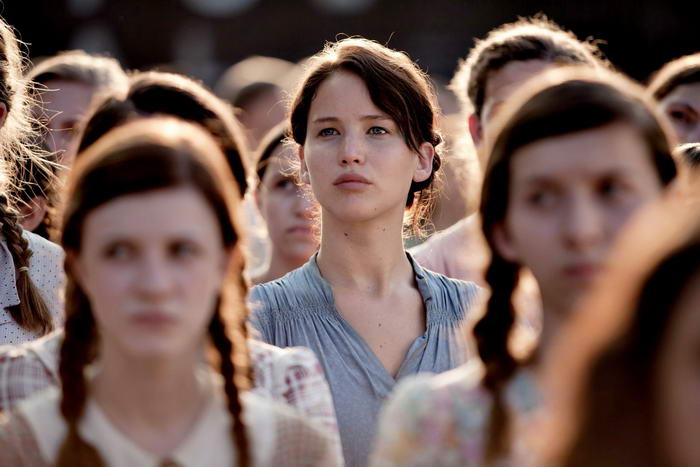
What started off as a book trilogy has now become a massive box office success. The Hunger Games film and its two sequels have become one of the highest grossing film series of all time, with the fourth and final instalment still set to be released next year. However, it hasn’t always been smooth sailing. The story touches on some very sensitive, controversial topics, such as reality television, body image and, of course, the fact that in the story children are forced to fight to the death as a form of entertainment. It certainly got people talking, but Vietnam took it one step further. They banned the first film in the series, The Hunger Games, due to the shocking extent of its violence.
09 – Catch-22

First published in 1961, Catch-22 is a satirical novel written by Joseph Heller, which is set during the Second World War. It is now considered to be one of the greatest works of fiction of all time – a modern classic, if you like – but you may be surprised to learn that a few decades ago, it wasn’t quite so popular. Several American states, including Ohio, Texas and Washington, banned the book during the 1970s, due to the derogatory way in which it referred to women. Changing attitudes have meant that those bans have since been lifted.
08 – Monty Python’s Life of Brian
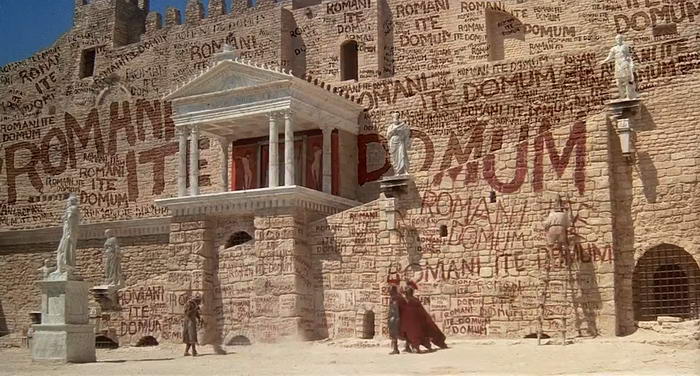
The Monty Python franchise is meant to be comedic in style. In fact, the cast have produced numerous television shows, films and stage plays that have been incredibly successful. However, one of their films, Monty Python’s Life of Brian, was deemed to overstep the mark. It was banned in Norway, Ireland and some areas of England. The reasons given were generally to do with inappropriate or offensive jokes to do with religion (you might recall the line, ‘he’s not the Messiah, he’s a very naughty boy!’). That said, they do say that there’s no such thing as bad publicity. So the Monty Python team actually used it to their advantage. When the film was released in Sweden, it was actually marketed as being ‘The film so funny that it was banned in Norway!’.
07 – Avatar
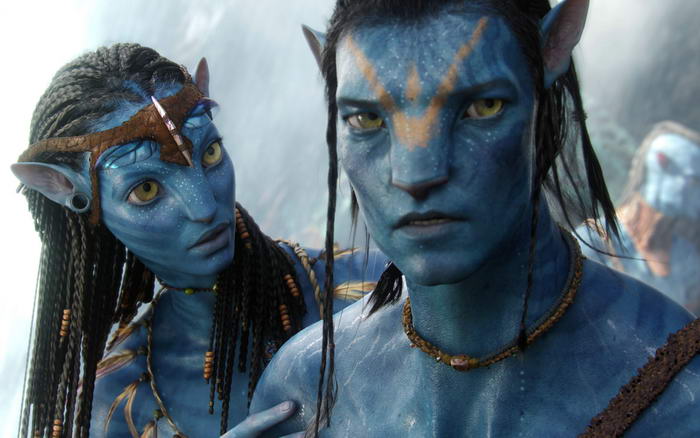
Avatar is the highest grossing film of all time, being the first film to break the $2 billion mark. It received incredible reviews and even went on to win three Academy Awards. However, it wasn’t quite so popular everywhere in the world. Believe it or not, China banned some versions of the film, because they believed it might lead people to rebellion and violence. Since then the DVD has become available in China. It’s such a great film that nobody should get away without seeing it!
06 – Nineteen Eighty-Four
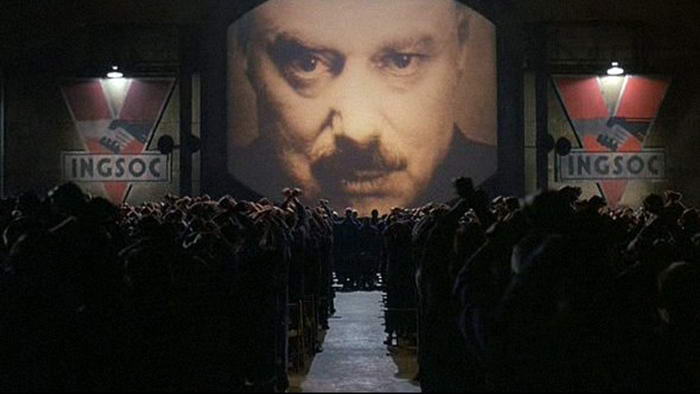
Nineteen Eighty-Four was a book written by George Orwell, but it was actually published in 1949. It was supposed to take a look at what life would be like in the future, in the year 1984, in a dystopian society. In truth, life has turned out vastly different from the dystopian world depicted in the book – or has it? Interestingly, many ‘modern’ ideas such as Room 101 and the idea of Big Brother watching our every move actually have their roots in this book.
The year after its release this book was banned in the Soviet Union. Because Stalin believed that it was meant to be a satirical examination of his ruling style. In addition, both the USA and the UK almost banned the book during the Cuban Missile Crisis, when tensions were at an all-time high. Despite this, it is worth mentioning that the book was edited slightly. And the new version was later released in Russia in 1990.
05 – Animal Farm
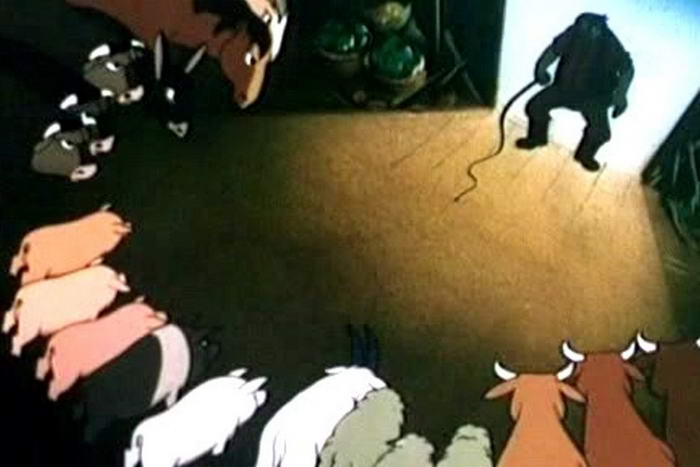
This is the second banned book on this list to be written by George Orwell. This time the title is Animal Farm. This time, it criticised the USSR – at the time they were a huge ally of Britain, so publication itself was incredibly difficult. Eventually, once it was published, it was banned in the USSR, which was not a surprise. However, much more recently it was also banned in the UAE because of the talking pig character, which they decided goes against Islamic values. It was also banned in Cuba and North Korea. It is still banned in both of these countries today and it is heavily censored in China and Vietnam.
04 – 2012

The Mayan calendar predicted that the world would come to an end in 2012. So obviously there was much hype in the build up to that year. In 2009 Colombia Pictures brought out a film called 2012, which was about the apocalyptic events that were predicted for three years later. It was a massive box office success, grossing $770 million. However, North Korea weren’t so keen on the film. 2012 marked 100 years since the birth of their founder, Kim Il Sung. So that year was declared as being very special in the country’s history. They took the depiction of the year 2012 in a negative light as being very offensive, so they banned the film altogether. Since then, there have even been reports of people being arrested on serious charges to do with owning or viewing the film.
03 – Lolita

Lolita has become a very famous work of literature, but it has always been seen as controversial. It tells the story of a middle aged man who gains a pre-teen stepdaughter, with whom he begins a sexual relationship. That’s enough to get modern tongues wagging, but imagine the outcry when the book was first published way back in 1955. It was seen as being so obscene and explicit that France banned it outright, while the UK border officials were ordered to seize any copies entering the country. Argentina, Canada, South Africa and New Zealand also banned it at one point or another. But that didn’t stop Vladimir Nabokov’s novel from becoming one of the most well-known and most discussed works ever.
02 – Lady Chatterley’s Lover
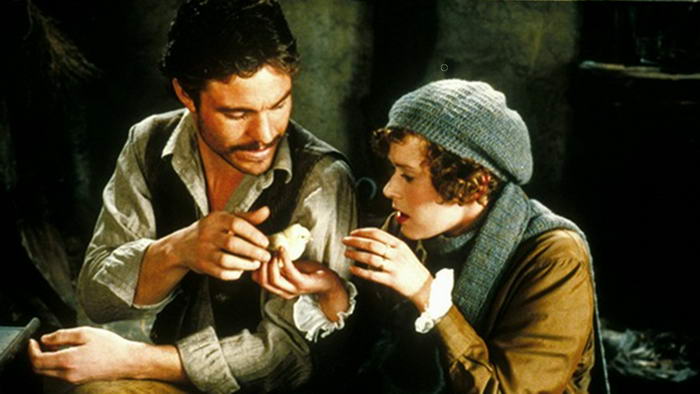
D.H. Lawrence wrote Lady Chatterley’s Lover, which has become world famous since its publication in 1928. However, at a time when the class system was still very much in place, the book’s subject matter was highly controversial. It follows the relationship between an upper class woman and a working class man. Their relationship is physical as well as emotional, and the descriptions of their romantic encounters are very graphic. The author also threw in some rather risky words that could be seen as offensive. As such, the novel was banned in Australia, Canada, the United States and the UK. Most of the bans were eventually lifted. Since then, there has even been a very popular film adaptation. But in 2009, certain stores in Australia banned the sale of the book to their customers.
01 – A Clockwork Orange

Originally a book written by Anthony Burgess, A Clockwork Orange has always been a highly controversial work. For starters, its use of a made up language called Nadsat makes the book edgy and difficult to follow at times. However, throw in the themes of dystopias, gangs, violence, controversial psychiatric techniques, and juvenile delinquency, and it’s easy to see why so many people were up in arms. The film was directed by Stanley Kubrick, which gives you an idea of its cutting-edge style straight away. As a result of its extreme violence and graphic rape scenes, the film was banned in several countries, including Ireland, Singapore and South Korea. Despite this, for many people it has become somewhat of a cult classic.
Shifting Shadows: How Controversy in Media Has Evolved Over Time
The landscape of controversial media has been ever-changing, reflecting the shifting sands of societal norms and cultural taboos. In tracing the evolution of controversy in books and films, we uncover not just a series of provocative titles, but a narrative of human society’s evolving psyche. This journey through time reveals how what once shocked our grandparents might now seem tame, and what we find contentious today may be tomorrow’s classic.
-
Early Controversies:
- “Haxan” (1922): Banned for sacrilegious content.
- “Gone with the Wind” (1939): Controversial for its portrayal of slavery and race relations.
In the early days of cinema and literature, controversies often stemmed from religious or political dissent. Films like “Haxan” were groundbreaking for their time but clashed with prevailing religious sentiments. Similarly, books and films such as “Gone with the Wind” were critiqued for their portrayal of sensitive historical issues, reflecting the societal values of their era.
-
Mid-Century Shifts:
- “Lolita” (1955/1962): Controversial for its themes of sexuality.
- “A Clockwork Orange” (1962/1971): Known for its depiction of violence and moral ambiguity.
As we moved into the mid-20th century, the nature of controversy began to shift. The focus turned more towards complex moral and ethical issues, with works like “Lolita” and “A Clockwork Orange” challenging societal norms around sexuality and violence. These works pushed boundaries, forcing readers and viewers to confront uncomfortable truths.
-
Modern-Day Controversies:
- “50 Shades of Grey” (2011): Controversial for its depiction of BDSM relationships.
- “Avatar” (2009): Critiqued for its socio-political commentary.
In recent times, the controversies have become even more nuanced, reflecting the complex societal debates of the 21st century. Books and films like “50 Shades of Grey” and “Avatar” highlight current societal debates around sexuality and socio-political issues, respectively. They show how our modern controversies are often layered, involving not just the content itself but the wider conversations it sparks.
The digital age has also transformed how these controversies unfold. The internet has provided a platform for instant feedback and global discussions, amplifying the voices of both critics and supporters. It has also allowed for a more rapid spread of controversial content, challenging traditional methods of censorship and control.
As we look to the future, the evolution of controversial media is bound to continue. Emerging technologies and shifting societal attitudes will undoubtedly give rise to new forms of expression that will test the boundaries of what is acceptable. These ongoing shifts remind us that controversy in media is not just about the shock value. It’s a reflection of our collective journey towards understanding and grappling with the complex tapestry of human experience.
In conclusion, the evolution of controversial media is a fascinating lens through which to view societal changes. From the early shocks of the 20th century to the nuanced debates of today, each era’s controversies tell us something about where we were, where we are, and perhaps, where we’re headed.

